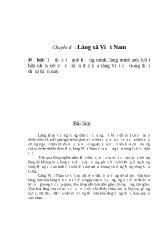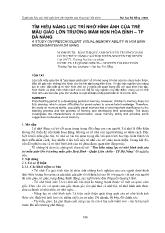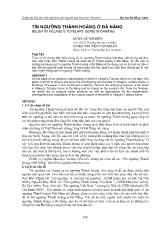The Lexical Differences Between American English And British English
- Người chia sẻ :
- Số trang : 17 trang
- Lượt xem : 6
- Lượt tải : 500
- Tất cả luận văn được sưu tầm từ nhiều nguồn, chúng tôi không chịu trách nhiệm bản quyền nếu bạn sử dụng vào mục đích thương mại
Bạn đang xem trước 20 trang tài liệu The Lexical Differences Between American English And British English, để xem tài liệu hoàn chỉnh bạn click vào nút DOWNLOAD LUẬN VĂN ở trên
Among the thousands of different languages in the world there is only one that can claim to be a more or less universal language—English. It is estimated that there are over 300 million native speakers, of whom some 200 million live in the United States and some 50 million in the United Kingdom. In addition to native speakers there are about 500 to 700 million people using English, which makes the total number of speakers nearly one-forth of the world’s population. Today, American English is particularly influential; there are many other varieties of English around the world, including, for example, Australian English, New Zealand English, Canadian English, South African English, Indian English and Caribbean English. Among the different variants of English the two best known are American English and British English. There do exist differences between the two, just as many differences in the varieties within themselves. To be consistent in the use of English, and more importantly, to be understood, the nonnative speaker needs to know which words have distinct meanings and pronunciations depending on whether they are used by an Englishman or an American. This is necessary not only for sake of communication, but also to avoid embarrassment. This paper will focus on how American English came to be different from British English in lexicology



